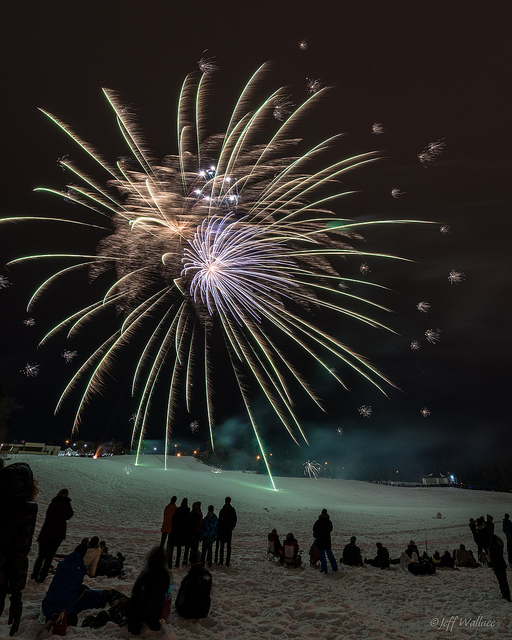National Holidays
As with most countries, Canada's national holidays generally mark religious, quasi-religious or patriotic occasions. Statutory holidays are established by Act of Parliament and are observed, without fail, by federal employees and by most Canadians, although increasingly, statutory holidays are becoming days for shopping and for large sales. Canadian statutory holidays are as follows: New Year's Day; Good Friday (or Easter Monday); Victoria Day; Canada Day (formerly called Dominion Day); Labour Day; Thanksgiving Day; Remembrance Day; Christmas Day; and Boxing Day.
The derivation of the 3 Christian holidays needs no explanation. New Year's Day, January 1, marks the beginning of the new year. Victoria Day (variously known as May 24th, the Queen's Birthday, Empire Day or Commonwealth Day) is celebrated in all provinces except Québec (where it is celebrated as Fête de Dollard, since 2002 Journe nationale des patriotes) on the Monday before May 25 and has been a national holiday since 1901. Traditionally, cottages are opened for the summer and gardens planted on this weekend, and the day is still celebrated in some parts of the country with fireworks displays. Canada Day, July 1, commemorates the day on which Canadian Confederation came into existence in 1867. Originally celebrated in rather quiet - and hence very Canadian - ways, Canada Day is now the occasion for elaborate cultural and entertainment spectacles, many paid for by the federal government to foster Canadian nationalism.
Labour Day is celebrated on the first Monday in September, once again providing an occasion for a long summer weekend. The day honours the contribution of organized labour and has been celebrated since at least 1872 and as a statutory holiday since 1894. Labour Day is traditionally celebrated with union-organized parades and picnics, particularly in Ontario where the holiday originated. Thanksgiving Day, which provides another long weekend, is observed on the second Monday in October (unlike the holiday in the US that falls on the last Thursday in November) and celebrates the harvest season. The statutory holiday began in 1879, almost certainly as an imitation of the American celebration, but earlier in the year as a recognition of the shorter growing season in Canada.
Remembrance Day is observed on November 11, the day of the armistice that ended the Great War in 1918 (see World War I). Usually celebrated with ceremonies at cenotaphs in towns and villages and at the National Cenotaph in Confederation Square, Ottawa, the day is marked by a moment of silence at 11 AM and by gatherings or parades of veterans of the world wars and later conflicts such as the Korean War and the Afghanistan campaign (see Afghanistan, International Campaign against Terrorism in). Boxing Day, December 26, is becoming almost universally observed as a day to recover from the exertions of the Christmas season and for bargain hunting.
A substantial number of holidays are celebrated in the provinces. Civic Holiday, variously called Heritage Day in Alberta, Saskatchewan Day, and Simcoe Day or McLaughlin Day in Ontario, is also celebrated in most provinces and territories and gives a long weekend at the beginning of August. Quebecers celebrate the Fête nationale du Québec (Québec national holiday) on June 24. Newfoundland and Labrador observe Memorial Day (July 1), among others. The Northwest Territories celebrates National Aboriginal Day (June 21) and Yukon has celebrated Discovery Day in August since 1912.
See also Religious Festivals; and Provincial and Territorial Holidays.

 Share on Facebook
Share on Facebook Share on X
Share on X Share by Email
Share by Email Share on Google Classroom
Share on Google Classroom




